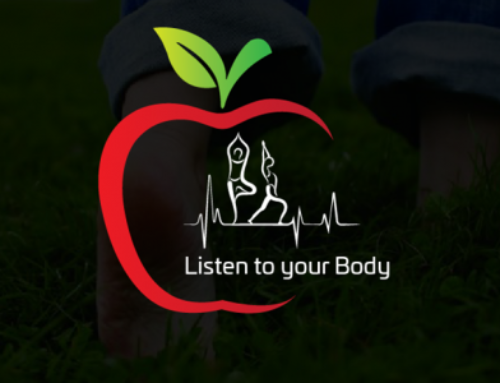How to Listen to Your Body: 4 Keys
October 2, 2019
Categories: Listening
One thing I struggle with is listening to my body. It’s tough for me to tune in to my body and listen to it—whether it needs food, water, rest, etc.
Not Listening to Your Body Has Consequences
Not listening to your body can have consequences. For example, growing up, I used to be overweight. During that time, I would eat even if I wasn’t hungry. I wasn’t tuned in to whether I was hungry or full. Because of that, I ate more than I needed to. I wasn’t listening to my body.
Or, more recently, I hurt my shoulder doing a muscle up in CrossFit. My shoulder was bothering me, but I didn’t listen to it. I continued to do exercises that were painful. After a while, I had to shut myself down, because I was injured and I wasn’t getting any better. I wasn’t listening to my body.
How in Tune Are You With Your Body?
What about you? How in tune are you with your body? In what areas is it tough to listen to your body?
4 Keys to Listen to Your Body
We might agree that listening to our body is important, but how do we do it? What are some practical things we can do to better listen to our body in our everyday lives? Here are 4 suggestions:
- Don’t rush. Sometimes we struggle to listen to our body because we’re in a rush. For example, when you are eating, it takes about 20 minutes for your stomach to recognize that you are full. It isn’t immediate. Because of this, if you are wolfing down your food, you are likely to overeat, not realizing you were actually full half a hamburger ago. Instead, slow down. Don’t rush. Give yourself some time to recognize your body’s signals.
- Notice the pressures. I remember when I was working out even though my shoulder was sore, I felt a pressure to keep going. For me, I had this idea that if I slowed down or stopped working out, I would get out of shape. The pressure was driving me to keep going, even when my body was telling me that I needed to take a break. If we can identify the pressures that keep us from listening to our body, we can make better choices. For example, perhaps I could recognize my pressure to stay in shape and work out in a different way that wouldn’t continue to injure my shoulder.
- Practice mindfulness. Most of us move from one thing to another, never stopping to check in with ourselves. Mindfulness is a practice that focuses our attention on the present moment. We check in with our thoughts, feelings, and bodily sensations and just notice them in a non-judgmental way. One quick way to practice mindfulness is to focus on our breath for five minutes each day. Just focus on breathing in and out, in and out. When something comes across your awareness, notice it, and then go back to focusing on your breath.
- Set reminders. Some people find it helpful to set a reminder on their phone to check in with their body periodically. For example, you might set reminders to ask yourself if you are hungry, thirsty, or full, or whether you need more activity or rest. Setting reminders can get you in the habit of checking in with your body, and then these habits can become more automatic over time.
Discussion
How in tune are you with your body? Do you listen to your body, or do you check out, going on autopilot? What do you think of the 4 suggestions to listen to your body? Which one might be helpful for you to try?
Related Thoughts

Subscribe To My Newsletter
Join my mailing list to receive the latest blog posts.
Receive my e-book “The Mental Health Toolkit” for free when you subscribe.




